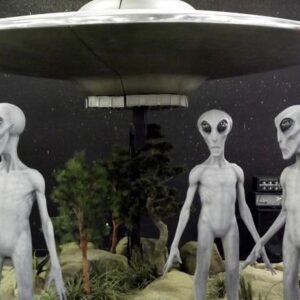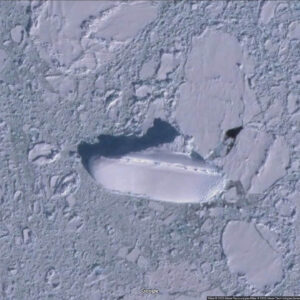Scientists at Oxford University warn that NASA’s plan to project Earth’s location into space could accidentally trigger an alien invasion.
At the end of March, experts at the United States Aeronautics and Space Administration (NASA) announced that they had written a message called “Beacon In The Galaxy” to the outside of Earth.

This message is binary coded, broadcasting information about the Solar System, Earth’s surface, and humanity to a part of the Milky Way that has been identified as the most likely site of extraterrestrial civilizations.
This is an updated version of the Arecibo message from 1974, sending similar information into space using a radio telescope in Puerto Rico.
However, Dr. Anders Sandberg, senior researcher at Oxford University’s Future of Humanity Institute (FHI), warns that sharing such information carries very high risks.
Dr. Anders Sandberg believes that the possibility of the message reaching an alien civilization is very low. “Beacon In The Galaxy” will have difficulty “traveling” through interstellar space and (if) it reaches some extraterrestrial civilization, it may not be taken as seriously as it seems. we expect.
“The message we expect to them may be no different from a boring postcard,” said researcher Anders Sandberg.
On the contrary, he warned that sending messages beyond NASA could “have such a negative impact that it really needs to be taken seriously.” Specifically, the possibility of accidentally revealing the location and triggering an alien invasion of Earth.

Another expert at Oxford University, Toby Ord, also made a similar argument in The Precipice, a book published in 2020, analyzing the existential risks and future of humanity.
Dr. Ord said the question to ask is the ratio of peaceful civilizations to hostile civilizations.
“We have very little evidence of whether this is high or low, and no scientific consensus. Since the negatives are likely to be much greater than the positives, it is not a good idea to look for or send messages beyond Earth.” uncertain land is the right thing to do,” he stated in the book The Precipice.
What does the NASA research team say?
“Beacon In The Galaxy” was invented by the team of Jonathan Jiang, a scientist at NASA’s Jet Propulsion Laboratory.

The message included basic mathematical and physical concepts to establish a common means of communication. This is followed by information on the biochemical composition of life on Earth, the location of the Solar System in the Milky Way compared to known star clusters, as well as a description of the Solar System and the Earth’s surface. chemistry.
The message ends with digitized images of the human form along with an invitation for any civilization to respond.
Because we don’t yet know what language “aliens” can “hear, read, speak, write” in, experts in Jonathan Jiang’s team encoded the message in binary form and transmitted it using a telescope. the 500-meter aperture spherical radio telescope in China and the SETI Institute’s Allen Telescope Array in California (USA) to a region of the galaxy thought to be most likely to harbor life.
NASA has not yet responded to the warning from experts at Oxford University. Jiang and his colleagues also acknowledged the negative risk, but ultimately argued that any aliens capable of decoding binary messages were unlikely to be aggressive invaders.
“Logically, a species that has reached a level of intelligence that can communicate through space will also know the importance of cosmic peace and cooperation,” said Jonathan Jiang’s research team.





